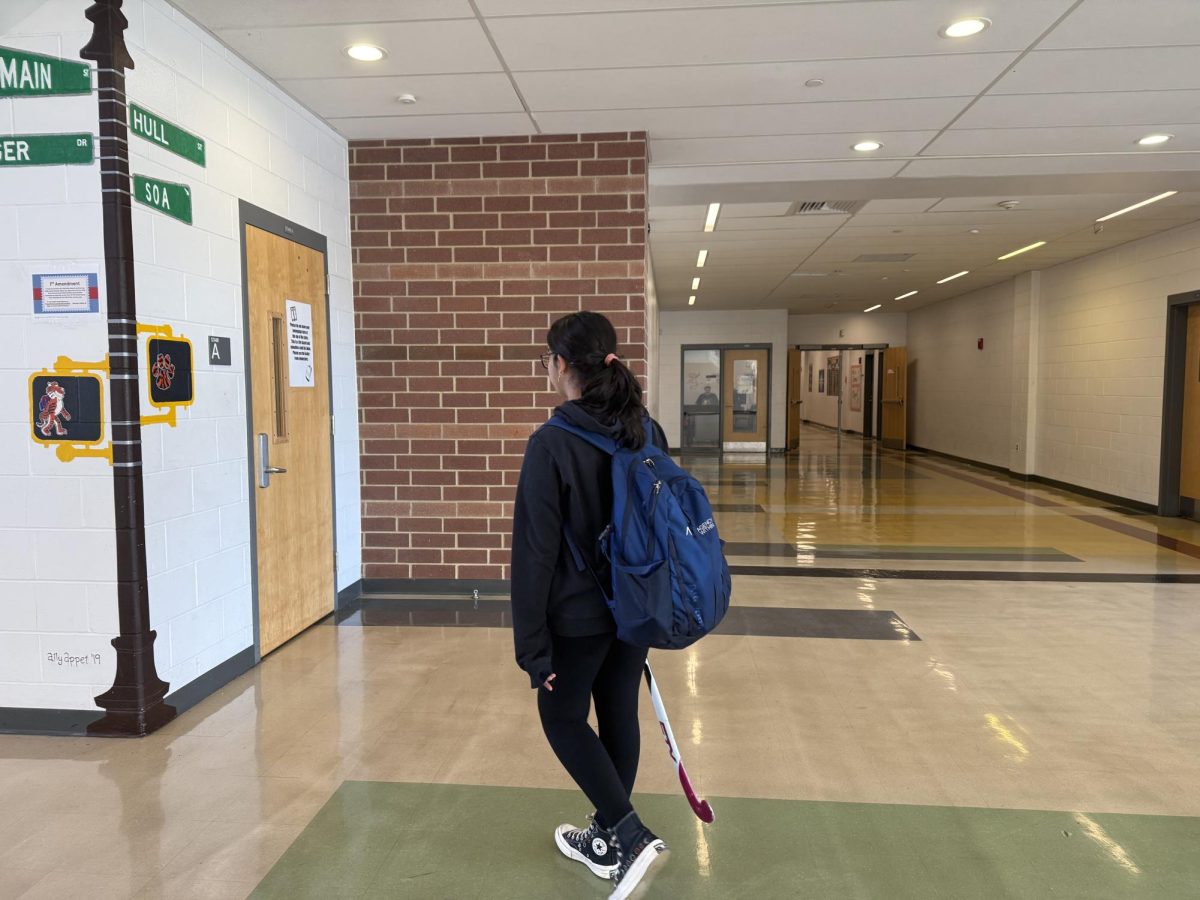by Sophie King
Tom Rich, a volunteer from the charitable organization Canines for Disabled Kids, educated students about service dogs today as a part of Deaf Culture Day C-Block in the auditorium, along with his canine companion Millhouse.
“If I take the [hearing aid] out, my world is silent, and that’s where my partner comes in,” said Rich, who has severe hearing problems.
His dog Millhouse was a rescue dog before he was retrained as a service dog. Rich explained the continuous process of training and recertification that he partakes in as an owner. Because one of Millhouse’s jobs is to be alert in case of a fire, “I have to have my wife run upstairs, stand on a stool, and set off a fire alarm sometimes just for practice,” Rich said.
Rich explained the different types of service dogs. Emotional support dogs cannot necessarily go into all public places while seizure alert dogs and dogs that aid the disabled are all allowed in public places.
Rich also had an important piece of advice for students: “The number one rule when you see these dogs in public is always, always ask first if you can pet them.” They are working dogs, not pets, and he added, “Do not be offended if the person says no.”
Rich’s organization sends him travelling across the country speaking to students about the important role that service dogs play in people’s lives. “Millhouse is a very smart dog. If there’s no room for him [by my feet] he will go and bump himself up to first class!” said Rich, who frequently flies cross-country with his well-behaved dog.
The organization also provides counseling and guidance for families considering the use of a service dog, and scholarships for children to get these dogs. It costs $20,000 to $25,000 to train a service dog, and the average client pays $5,000 out of pocket, said Rich.















































